The DIY Hip Hop Business Master Class
Posted by Justin Boland on Aug 21, 2008 | 0 Comments
This is a collection of the best, most useful highlights from interviews with hip hop legends and DIY entrepreneurs. There’s tons more information in the Audible Hype forums, and if you’re new to the site, start here.
?uestlove
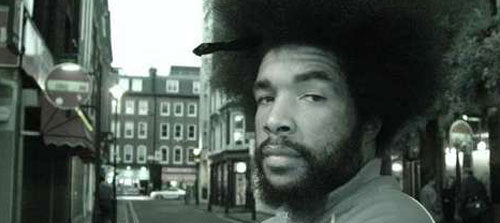
When we were out there on The Chronic battlefield, from “92 to “97, me and Rich [The Roots’ longtime manager] were racking our brains on how to escape from the pack, how to matter. A lot of people accuse of us over-thinking. And that’s OK. But we looked at every successful artist. We pored over charts in industry magazines going back decades, looking for commonality. And what we found was that anyone who was successful was not isolated. Besides a couple of one-hit wonders in the “60s (there was no “movement’ behind “Tiptoe Through the Tulips” or “Monstermash”), every big act was part of a larger movement. The Beatles were by no means by themselves. The British Invasion also meant that you had the Stones, the Kinks, The Who. Likewise with hard rock-Deep Purple, Led Zeppelin-or the Philadelphia sound-Billy Paul, Harold Melvin and the Bluenotes, the Three Degrees.
Once Illadeph came out, me and Rich were like, we’ve got to get a movement. We weren’t trying to be the Rudolph the Rednosed Reindeer of this. So around “97 or “98, when we went to Geffen, we told them upfront that the only way this was gonna work was if we could be like Noah and bring a bunch of other complementary artists on board with us.
Source: Indy Week
Wendy Day
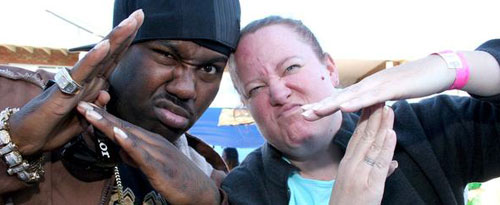
The basis of any successful project is the music. The music must be banging and must have appeal outside your inner circle. That means you don’t just play it for your boys, you play it for people you don’t know who are most likely to be honest with you about whether or not it’s on point. When putting out Do Or Die’s first single in Chicago, “Po’ Pimp,” we gathered together all the local mix show DJs, club DJs, and some of the local retailers and played a few songs for them. They unanimously picked Po’ Pimp as their favorite song, so Do Or Die had reconfirmed exactly which single to press up (and the DJs felt like they played a part in choosing the single). Why spend tens of thousands of dollars on pressing and promotions if you aren’t certain you’ll have the support of the local DJs and stores?
Once you decide on the first single and press up your record, you market it within a small geographic area that you can affordably control. Unless you are backed by millions of dollars and a flawless major distributor, you don’t want to start nationally because you can’t be everywhere in the country at once. The larger labels have staffs and budgets to accommodate a national release, but since you don’t, start with just your city or town and no more than a few nearby. I usually draw a circle around the city where the artist is based. I make the circle about a three to five hour driving radius, and that becomes the target area.
Make certain you’ve done the research in all of the areas you choose where the record will sell. Choose areas where the artists can travel cheaply and easily, since they may need to travel often into those areas to support the record. For example, it would not be a wise decision to choose New York, Houston, and the Bay Area for simultaneous release because the airfare alone would kill you financially every time your artist needed to travel to support the record at radio or retail or with a show.
Source: The Day Report
Paul Wall
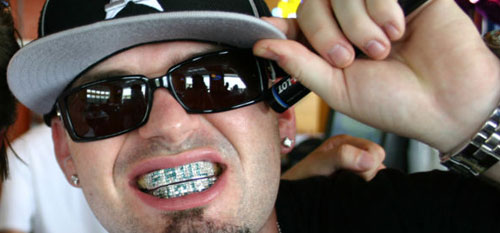
“When I was 14, that’s when my life changed because that’s when I got really heavy into street promotions. I worked and did a lot of stuff for Def Jam and stuff for Cash Money, before they signed their major deal. But, doing the street promotion, a lot of that was me just learning and working the game because I was always taught and my mother always embedded in me, that if you work, you’re going to get paid.
If you don’t work, you’re not going to get paid and no one was going to give me sh-t. So I took that aspect and worked, worked, worked. I built up reputations with different store owners being that I was doing retail promotions and different DJs being that I would service them with records. When I brought them the new Jay-Z record, they remembered me like, “What’s up.” I built those relationships up… I still took that job with pride, worked it to the best of my ability and it gave me respect within the industry to what I was doing: building up relationships and rapport with different record labels or producers.”Â
Source: Baller Status
El-P

In the early days of your career, what do you think paid off most for you? Because it isn’t always a given that talent is going to rise to the surface, and nowadays the industry is even more oversaturated.
It’s a combination of a complete, blind arrogance-don’t let anyone tell you that you suck, even if you suck-and ridiculous amounts of energy and overstated ambition. That’s it. If you have those things, just keep fucking going until you can’t. If it changes or you don’t like it anymore, move the fuck on. Until then, just write and be passionate and do the thing you believe in, period. Don’t let anyone tell you that you can’t.
Source: The Red Alert
As being the leading figure of Def Jux, do you need to do some A&R or are the albums the people hand in, in no need for you to do anything?
I definitely get down and dirty with cats and build with them about their records. I don’t cross the line, but I’m really interested in what cats are trying to do. And I think that a lot of times the cats that I work with, are interested in talking it out with me. Obviously on the CanOx album I played a big role. I think I played a very big role in the Mr Lif album, even in the EP. Because we are just really good friends, and we always build with each other about shit. With a cat like Aesop, I just let him do his fuckin’ thing.
When I met Aesop, he had two albums under his belt. So he just kinda gave his album to me. With Murs, it’s pretty much the same thing, except of the collaborations that we did. So it really depends. It depends on what the relationship is. It depends on what the vibe is. I’m certainly not the type of cat to, infringe on somebody’s ideas. What I do do, is, if they want it, I give suggestions, in terms of anything that I can help with. But I do believe in trusting people. Trusting the artist. Because I always wanted people to trust me. And I hated to be in a situation where I had to explain something to somebody, who clearly wasn’t feeling what I was feeling. I don’t think it’s ever really like that at Def Jux. If anything, it’s all on some positive reinforcement shit.
I like to get down with cats that really think about it. Cause everyone knows it’s a team effort, and you want everybody to come up with the best possible thing going. But I would never, for instance, give a suggestion what to write a song about. Or, ‘why don’t you do the chorus like this?’ That’s not my shit. But if somebody wants to talk about help with producers, or sequence the album. Or an idea for a way to bring the concept they have in mind to life, I’m 100% down to talk about it. But at the end of the day, it’s up to the person whose record it is, to either take my suggestion or not. I try to be there if they have a questions and if they trust what I try to say.
Source: Urban Smarts
iCon the Mic King
![]()
What’s your perspective on the business of collaborations? Can established rappers make good income off that, or do they mostly undervalue their verses and beats?
“Collaborations are a complicated issue, man! I don’t personally believe it does much to validate anyone especially in the information age. I feel like people download the song and skip to featured verse listen to it a couple times and then erase the song. Let’s say it’s a hot song, it’s a hot song of yours that you can’t really perform unless that person is around. Businesswise it’s both. Established rappers can make good income off it but a smart businessman prices his product in the range of his customer so you have [insert rapper here] selling verses on his myspace for $500 or [insert producer here] selling beats for $50. I understand where they are coming in that you price it lower you sell a bunch, but it destroys utility. Most times people ask me to collab and I request what I am worth they say “well I can get [insert rapper here] for $500 man you gotta come down.” The economies of scale of collaborating are much different now than when rappers were much less accessible.”
Source: Audible Hype, baby
DJ Vlad
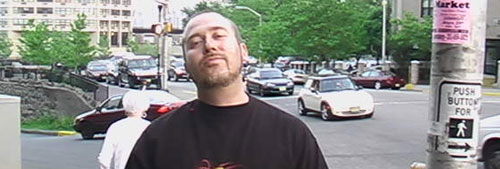
A lot of people email me everyday to try to “network’. Most of the time, they don’t understand what networking really means.
Your network is people that you have done actual business with - not people that you have seen in the club. I’ve had conversations with Jay-Z, 50 Cent, and Puffy multiple times. I didn’t have any business that I could bring to them at that time, so they’re not in my network.
“I’m hot but I’m broke, put me on” is begging.
“I’ve got a project with a budget that I want to work with you on. We have $10,000 dollars for you upfront” is networking.
Professionals network with other professionals. Hobbyists network with other hobbyists. If you make your living off your music - you’re a professional. If you don’t earn your living off your music - you’re a hobbyist. This is not my opinion - it’s the dictionary definition.
Slug
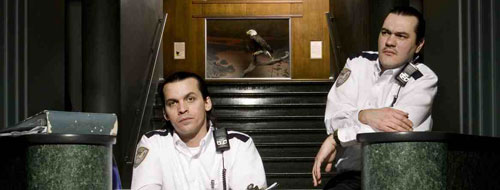
“I don’t really do many collabs, but when I do I hardly charge people. Anyone I do charge, it’s because I know they have a budget and when I do charge I make them give it to charity. I don’t actually collect a check from them. My job in this shit isn’t to make money off of my voice or my rapping, but to figure out how to be good enough business wise, to make my art make my money for me, rather than make the art the money.
Sales are one thing, but to me those are called royalties. It’s not like every time you buy a CD I’m popping off. No, you buy a CD and you’re helping me cover the cost of making the damn CD for starters. You’re also helping me cover the cost of bringing the CD to your city, bringing a tour to your city that is also bringing three other rap groups to your city that you may have never experienced. It’s not like I’ve got this incredibly genius business strategy. I ain’t really supposed to get rich off of rapping; I’m supposed to get rich off of everything else that makes itself available to me because I rap.
I really don’t give a fuck if people hate me. The elitists or the underground people that say “ohh fuck him, he’s a sell out.” Naw, actually fuck off. I know what I’m doing. I know what my choruses sound like. I know what my beats sound like. I’ve never paid anyone to play my record. I’ve never played any of the games trying to sell lots of records. The closest I’ve come is making videos, but videos are fun, man. I didn’t make videos so that MTV would play them. Hell, MTV didn’t play the shit. I made them because I wanted a visual to go with the song.”
Source: Impose Magazine
Buck 65
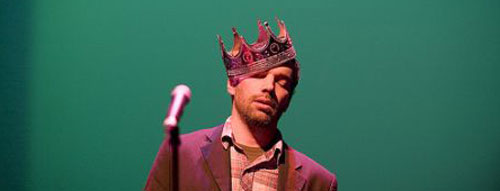
“For me and for most musicians these days, we pretty much have one option left to put a career together, which is to tour. And to really make a living, you’ve got to tour all the time. But if that’s becoming the case for everybody, you’re going to have every band on the road all the time,” Halifax-bred hip-hop MC/producer Rich “Buck 65” Terfry, who handles most of his own touring affairs, recently remarked to me.
“When I was booking the tour I’m currently starting in the U.S., we were having some real problems. We wanted to go into, you know, Albuquerque, New Mexico, during this particular week, but even way in advance there were so many other bands and only so many rooms. And we came to find out that we’re in a time right now that’s kind of unprecedented in the amount of bands that are out there on the road. So that’s going to spread things a little thin.“Â
Source: The Star
Of Course There’s Gonna Be a Sequel…
This is not the end. There’s a lot more information floating around out there-and a thousand more voices I could have included. If you’ve got suggestions, quotes, or just a heads-up on people I should be checking out, please leave a comment and LET A MAMMAL KNOW. Thank you.
